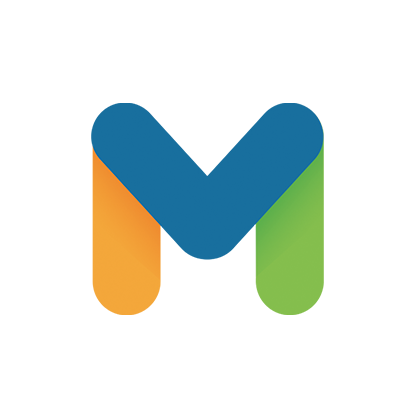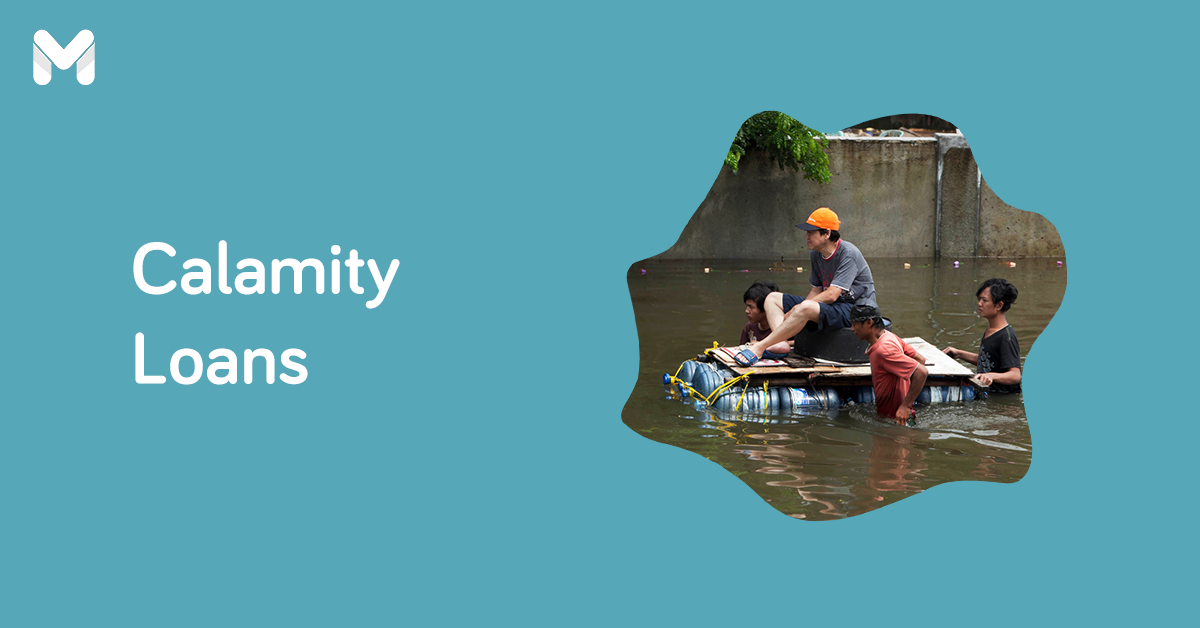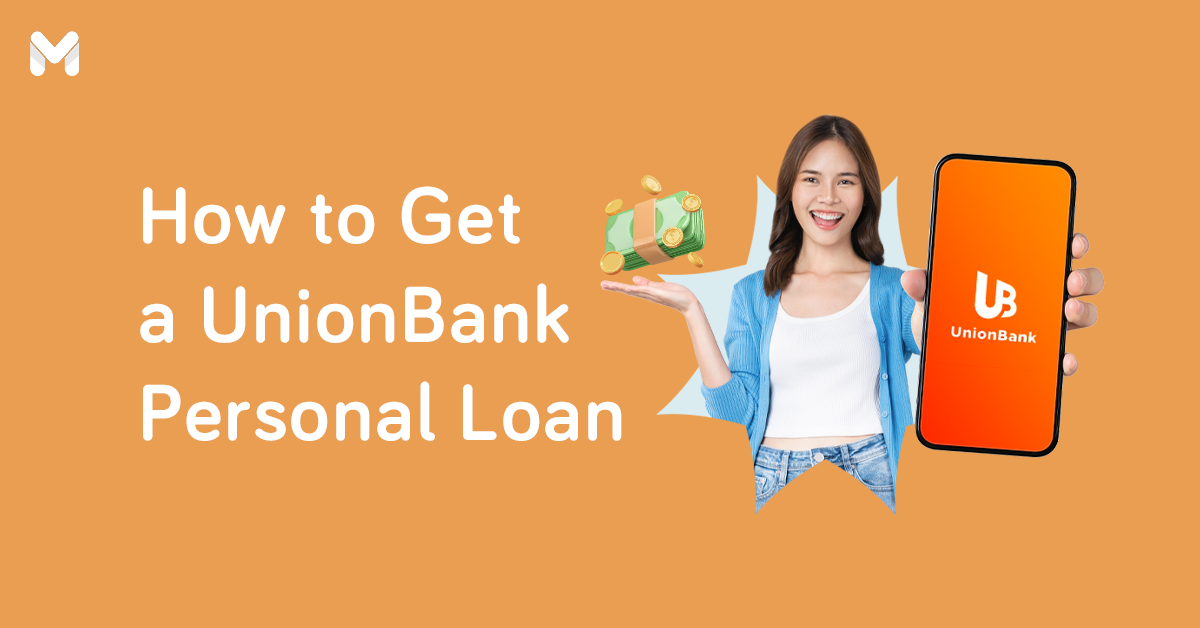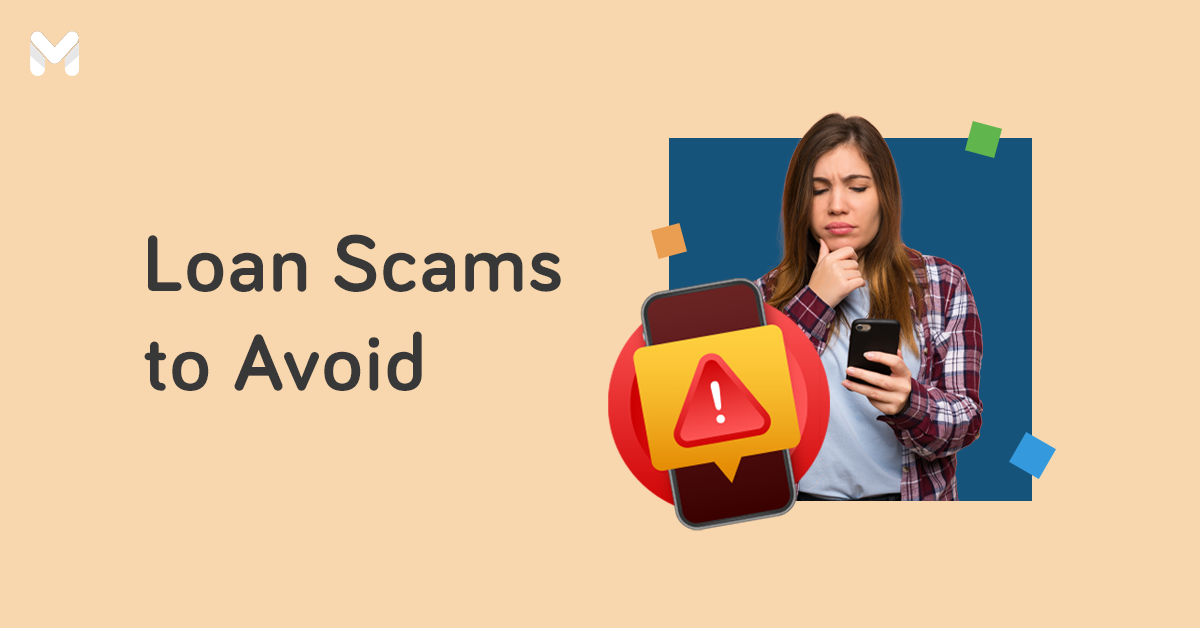Planning to take out a loan for the first time? Whether it’s to fund an emergency or fulfill a life-long dream, always operate from a place of knowledge when borrowing cash. For starters, you can make an informed decision about what loan option suits you best by knowing the difference between the two main types of loans.
Secured loans vs. unsecured loans—you need to understand these two loan types first. Both are offered by banks, credit unions, online lenders, and other loan providers. The key to understanding how each works is to learn the basics and weigh the pros and cons.
Read this extensive guide to know more.
What Are Secured Loans?
-2.png?width=600&height=400&name=Pics%20for%20blog%20-%20600x400%20(44)-2.png)
Secured loans are loan products that require collateral.[1] If you have assets like real estate properties, vehicles, or deposit accounts, you can choose to apply for a secured loan.
The bigger the amount you’re looking to borrow, the higher the value of your collateral should be. On the upside, since you’re putting up collateral, you’ll also get more flexible terms and lower interest rates.
Here are some of the types of assets and properties you can put up as collateral:
- Real estate property (house and lot, buildings, apartments, etc.)
- Vehicles (cars, motorcycles, trucks, etc.)
- Bank accounts
- Stocks, mutual funds, and other investments
- Insurance policies
- High-value antiques and jewelry
However, if you fail to pay back the money you borrowed, your loan provider can take away the asset you offered as collateral.
If you have high-value assets to spare and the capacity to pay back the loan in no time, this is the perfect type of loan for you. Secured loans are more ideal for those looking to fund a life-long goal or anything that doesn’t require immediate financial attention.
📌 Types of Secured Loans
Here are some examples of secured loans:
- Mortgage Loans - If you’re looking to fund a home by getting a mortgage, you’re essentially getting a secured loan. The house that you’re paying for can be considered the collateral—and if you fail to settle your debt, the bank will repossess that property.
- Vehicle Loans - Similar to a mortgage loan, the vehicle you’re purchasing with the money you borrow will serve as collateral.
- Secured Credit Cards - Getting a secured credit card can be considered as taking out a secured loan because you’re essentially putting your bank account as collateral. If you default on your secured credit card payments, the bank can take the funds from your bank account.
📌 Pros and Cons of Secured Loans
-2.png?width=600&height=400&name=Pics%20for%20blog%20-%20600x400%20(45)-2.png)
Consider both benefits and risks before taking out a secured loan:
👍 Pro: Lower Interest Rates
Offering collateral reduces the risk for banks and other loan providers since they can seize your high-value asset if you fail to pay back what you owe. That’s why they can make it easier for you to pay back your loan by offering lower interest rates.
Moreover, if you have a good credit score, you can lower your interest rate even further, making it a lot easier to settle your debt.
👍 Pro: Higher Loan Amounts
You can also aim for a higher loan amount that equals, if not exceeds, the value of your asset. Use your asset or collateral to assure your loan provider that you have a good financial background and the capability to pay back what you owe.
So if you’re looking to borrow a huge amount—say, north of six figures in Philippine peso—consider getting a secured loan.
👍 Pro: Easier to Qualify for
As you’re assuming a big risk from the get-go, banks and loan providers will no longer impose intimidating requirements just so you can take out a loan. Plus, even if you have a bad credit standing, offering a high-value asset as collateral can improve your chances of getting your loan approved.
👍 Pro: Longer Repayment Periods
You can also have longer payment terms, especially if you’re getting specific types of secured loans like a mortgage or a home equity loan. If you don’t mind your asset being held as collateral for a prolonged period, you can take your time paying back your loan and not leave lasting repercussions on your credit score and finances in general.
However, don’t use this as an excuse to prolong your debt payment—as always, it’s best to settle your debt early to avoid extra fees.
👎 Con: Risk of Asset Repossession
High risk, high reward, as gamblers like to say. The same goes for secured loans.
If you default on a loan, or if you miss your monthly payments consecutively, your loan provider will seize your high-value asset. On top of that, your finances will also take a hit as you’ll lose the collateral you put up.[2]
👎 Con: Risk of Damaging Your Credit Score
Defaulting on any type of loan can ruin your credit score. But imagine if you have a bad credit score to begin with, then you default on your secured loan, and your collateral is taken away. You can kiss all your chances goodbye at any type of loan approval in the future.
So try your best not to default on any loan, especially a secured loan, because the worst-case scenarios can be just full-on nightmares.
👎 Con: More Expensive in the Long Run
One downside to choosing a longer payment term is that you’ll likely end up paying more in the long run. Remember, although your interest rates are lower, you’re still paying them—and those extra fees can stack up when you drag them out for a long time.
So don’t mistake longer payment terms for more savings. If you have the financial capability, always choose the shorter payment term.
What Are Unsecured Loans?
-2.png?width=600&height=400&name=Pics%20for%20blog%20-%20600x400%20(46)-2.png)
Unsecured loans are loan products that don’t require you to put up collateral. Compared to secured loans, unsecured loans are more commonly offered by banks and other lending institutions. Almost anyone can get one since you don’t need to own a lot of assets.
While the lack of collateral requirement is a big upside for unsecured loans, you still have to meet a set of eligibility criteria and submit a stack of documents as requirements. But if you have a good credit standing, you have a higher chance of loan approval.
📌 Types of Unsecured Loans
Here are some examples of secured loans:
- Personal Loans - These are the most common unsecured loans you can get. You can apply for a personal loan from almost any banking institution and for almost any purpose.
- Revolving Loans - These are loans that give you a certain amount of credit to spend as you go. A good example of this is a credit card with a credit limit that you can spend as you see fit.
- Online Loans - These are loans that you can apply for with just your smartphone. They usually offer small loan amounts with short payment terms and high interest rates. Online loans are mostly used to meet short-term goals.
Read more: Where to Borrow Money with No Collateral: 12 Best Unsecured Loans
📌 Pros and Cons of Unsecured Loans
-2.png?width=600&height=400&name=Pics%20for%20blog%20-%20600x400%20(47)-2.png)
Consider both benefits and risks before taking out an unsecured loan:
👍 Pro: No Collateral Required
The biggest benefit of getting an unsecured loan is that you don’t need collateral to access funds.
👍 Pro: Versatile Loan Use
Unlike secured loans where you can only use the proceeds for one specific purpose, unsecured loans are less restricted and can fund any financial need. You can take out an unsecured loan for almost anything, whether it’s funding your dream wedding, booking a vacation, buying the latest gadget, or even paying back any outstanding debt.
If you want to be flexible in your spending, then an unsecured loan is the better pick.
👍 Pro: Quicker Loan Process
The entire process of getting an unsecured loan is easier and a lot more convenient. Since there’s no collateral needed, you can apply for one as soon as you have all your requirements ready. You can even do it completely online!
Approval can take as fast as five minutes, and disbursement two working days. The convenience of it all is yet another reason why this loan type is more popular.
👎 Con: Higher Interest Rates
Unsecured loans almost seem too good to be true, if not for the high interest rates. Since banks and other loan providers assume the bigger risk, they impose higher interest rates for unsecured loans compared to secured loans.
But if you have a good credit standing, you can always negotiate for lower interest rates. However, if you’re a first-time borrower with no prior credit record, you won’t have any leverage to negotiate, so you’ll have to deal with higher interest rates.
👎 Con: Stricter Eligibility Requirements
Since unsecured loans don’t require collateral, loan providers will have to rely on your creditworthiness to decide on your loan application. That’s why banks and loan providers impose stricter eligibility requirements on potential borrowers.
Still, this doesn’t mean that first-time borrowers will absolutely get denied. To increase your chances of approval, make sure to submit every document required by the bank and settle any outstanding debt.
👎 Con: Hefty Late Payment Fees
Since loan providers don’t have any collateral to seize should you fail to pay back an unsecured loan, they cover their bases by slapping you with hefty personal loan fees. From making late payments to maxing your credit limit, any wrong move you make comes with an expensive add-on fee.
Incurring these fees not only burns your wallet but also hurts your credit score as everything gets recorded in your credit report.
Secured Loans vs. Unsecured Loans: Key Similarities and Differences
Still confused about the difference between secured and unsecured loans? Here’s a quick table highlighting the unique features of each.[3]
| Features | Secured Loans | Unsecured Loans |
| Requires collateral | Yes | No |
| Interest rate | Lower | Higher |
| Loan amount | Up to ₱5 million | Up to ₱3 million |
| Eligibility | Easier to meet as long as you have collateral | Harder to meet |
| Requirements | Minimal requirements | More requirements |
| Payment terms | Longer | Shorter |
Secured Loans vs. Unsecured Loans: What’s the Better Option for You?
-2.png?width=600&height=400&name=Pics%20for%20blog%20-%20600x400%20(48)-2.png)
Now that you have the cheat sheet on what secured and unsecured loans are, how do you decide on what to get? Here are a few tips to help you make an informed decision:
- Take note of the assets you currently have. Do you have a property or asset you’re willing to use as collateral? If you’re leaning more towards getting a secured loan, make sure you have a high-value asset that you’re ready to let go of in case you default on your loan. If you’re not ready to lose your collateral, consider other options.
- Define your purpose for getting a loan. Why are you applying for a loan in the first place? Are you funding a wedding or vacation? Do you need cash to pay for medical bills? How soon do you need the money? Figuring out your loan purpose can help you decide on what type of loan to get.
- Determine how you’re going to pay back your loan. Before you choose between a secured or an unsecured loan, make sure you have the capacity to settle your debt first. Do you have a steady source of income? What’s your contingency plan in case you miss a loan payment? Don’t apply for any type of loan without considering this.
- Compare interest rates and payment terms. In case you’re all set to apply for a loan, the next thing you should consider is how to compare personal loan rates. Obviously, you want a lower one, but if you have no other choice but to accept a higher interest rate, try to compare options from different loan providers to find the best deal.
- Choose a trusted bank or loan provider. With all of today’s fancy apps, applying for a loan has never been so convenient. You’re essentially spoiled for choice. The only thing you need to do, whether you’re applying for a secured or unsecured loan, is to stay vigilant and ensure you’re dealing with trusted financial institutions. Do your own due diligence to weed out any illegitimate options from your list.
⚡Get Approved for a Personal Loan within minutes with Finbro!
-png-1.png?width=751&height=219&name=image%20(30)-png-1.png)
Apply now via Moneymax to get started on your quick loan!
- Loanable amount: ₱1,000 to ₱15,000
- ₱1,000 to ₱15,000 on your first loan
- Up to ₱50,000 on succeeding loans
- Monthly add-on interest rate: 0% to 0.2% daily or 6% monthly
- Loan tenure: 12 months
- Processing fees: Cap of 15% monthly
- Processing time: Between 10 minutes to 1 business day
Final Thoughts
Secured loans vs. unsecured loans—both have their pros and cons, and both can give you access to much-needed funds right when you need them. To choose which one can benefit you the best, assess your exact needs, use the right criteria to compare your options, and identify the best potential loan providers.
Taking out a loan, whether secured or unsecured, doesn’t have to be a complicated process—just do your due diligence, arm yourself with knowledge, and make informed decisions as best as you can.
Decided to go with an unsecured loan? Compare personal loan options below and apply directly via Moneymax:
|
Provider
|
Loan Amount
|
Monthly Add-on Rate
|
Loan Term
|
Minimum Annual Income
|
Approval Time
|
|---|---|---|---|---|---|
|
UnionBank Personal Loan
|
Up to ₱2 million
|
26.9% per annum
|
12 to 60 months
|
₱250,000
|
As fast as 5 minutes
|
|
UNO Digital Bank Personal Loan
.png?width=149&height=52&name=Unobank-Logo-Colored_Horizontal-Medium%20(for%20MMX).png) |
₱10,000 to ₱500,000
|
1.79% per month (corresponds to annual contractual rates or annual percentage rates ranging from 35.78% to 37.54%)
|
Six to 36 months
|
₱240,000
|
Five to seven banking days
|
|
Metrobank Personal Loan
|
₱20,000 to ₱2 million
|
1.25% to 1.75%
|
36 months
|
₱350,000
|
Seven banking days
|
|
BPI Personal Loan
 |
₱20,000 to ₱3 million
|
Maximum annual contractual rate of 28.67%
|
12 to 36 months
|
Inquire with BPI
|
Five to seven banking days
|
|
Tonik Credit Builder
 |
₱5,000 to ₱20,000
|
4.84%
|
Six to 12 months
|
Inquire with Tonik
|
Two banking days
|
|
Tala

|
₱1,000 to ₱25,000
|
0.43% daily
|
Up to 61 days
|
None
|
Five minutes to 24 hours
|
|
HSBC Personal Loan
|
₱30,000 to ₱500,000
|
0.65%
|
Six to 36 months
|
₱168,000
|
Five to seven banking days
|
|
CIMB Personal Loan
|
₱30,000 to ₱1 million
|
As low as 0.83%
|
12 to 60 months
|
₱180,000
|
One to two banking days
|
|
Maybank Personal Loan
|
Up to ₱1 million
|
1.3%
|
Up to 36 months
|
₱300,000
|
Inquire with Maybank
|
|
RCBC Bank Personal Loan
 |
₱50,000 to ₱1 million
|
1.3%
|
Six to 36 months
|
₱360,000
|
5 to 7 banking days
|
|
PSBank Personal Loan
 |
₱20,000 to ₱250,000
|
|
24 or 36 months
|
₱180,000
|
Five to nine banking days
|
Sources:
- [1] Collateral Definition, Types, & Examples (Investopedia, 2024)
- [2] What Happens if You Don't Pay Back a Personal Loan? (Investopedia, 2023)
- [3] Secured vs. Unsecured Loans: What's the Difference? (Investopedia, 2023)







_1200x350.png?width=734&height=214&name=UB_PL_Generic_2_(Jan_2025)_1200x350.png)
_1200x350_CTA.png?width=1200&height=350&name=UB_PL_Generic_Ad_-_Home_Improvement_(Sep_2023)_1200x350_CTA.png)


